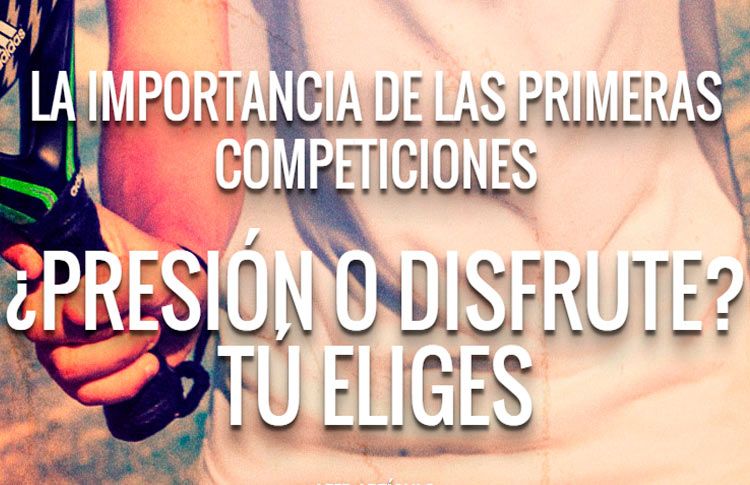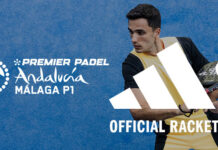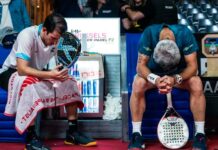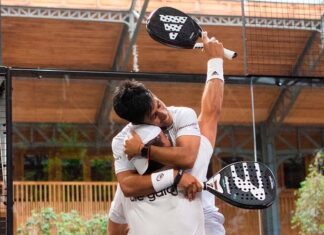Padel World Press .- The first competitions tend to be positive or negative depending on how the situation is handled. A priori, the children see the tournaments as a test where they are put to the test, as a skill contest where some win and others lose. This is the first reflection that young athletes usually make of competition but depending on the treatment of this fact by their parents, their coaches and their environment, the initial reflection is reinforced or gives way to another reflection much more natural and less traumatic for the young players.
If a boy who starts competing observes that his parents are nervous, criticize opponents, act and behave differently if they win or lose, it is clear that this child will think "this is important" and effectively It is, but not because of an outcome, but because of the importance of being physically and technically tested as a result of training, but without losing the perspective of entertainment and fun. The problem is that, On many occasions, what we transmit to these children who start competing is that the important thing is to win and in this reflection is where the main problem of young athletes lies: 'the pressure to compete'. It is a negative emotion that, in principle, the players themselves are provoked but can be increased if it is perceived that the environment values the result over performance.
The word pressure, in the sports field, we can define it as a state of certain anxiety that an athlete feels when faced with a situation that he considers threatening ... The question would be: Why do you consider it threatening? Most likely because they value the consequences of acting more than the performance itself.
Once the term is defined, it is convenient to investigate where this pressure comes from, what factors cause this negative reaction in athletes ... In general, four well-differentiated pressure sources are distinguished:
Main Pressure Spots
- Athlete's environment (parents, family, friends ...)
- The Coach
- Body, Federation or team to which it belongs
- The athlete himself
The Athlete's Environment Many times it does not help young athletes to give their best. I do not know any parent or family member who, voluntarily, wants to harm your child or close friend but I do know many cases where, inadvertently, the performance of the athletes is harmed. The talks before and after the game, the verbal and nonverbal language they perform when the athlete is competing, the change of mood according to the result, and even the different behaviors that can be adopted, as parents, depending on whether your child / a has won or lost the game, tend to be the factors that cause this pressure on young athletes.
Coach It can also be a source of pressure for the young athlete. It is not usual because, in general, the technicians usually do their job trying to train the athlete as best as possible without subjecting them to any type of pressure, even taking it away. However, in some cases it is not like that. There are training systems and attitudes of some coaches that do not help the athlete to do their best without feeling pressured.
On the other hand, there are Organizations, Federations or Clubs to which the athlete belongs. Many young people depend on their results to maintain a sports and academic scholarship and that is a major source of pressure. In other cases, some clubs rely exclusively on the results to keep the player on a team or not and, as is evident, that poses a threat to these athletes.
And, finally, it's the own athlete who, on many occasions, is pressured without anyone exerting any apparent influence on them. This pressure is the result of a focus on poorly directed attention. Young athletes tend to focus their attention on the results and consequences of them and not on performance or daily training. The problem is that, if we do not focus on the daily work and we are only concerned about what will happen in the competition, it is very likely that we are not taking full advantage of that work.
To put an academic simile, it is as if a student was only concerned about the exam and not so much for the fact of studying properly every day. That is why we must focus our young athletes towards performance goals and forget a little of the results at this stage of their sporting life ... There will be time to have to worry about both but, in the training stage, it is fundamental that the boys / as focus their attention on the use of training and meet performance objectives, that in obtaining results.
Performance objectives are those that depend on the athlete himself, that is, they are not objectives that are beyond his control, they are sports conducts that are directed at all times by the athlete and that aim to promote performance. For example, winning a match does not depend on the 100% of the player, and less on a sport such as padel where the efforts are shared, but having a good attitude after mistakes if it depends completely on one. Another example, to reach the semifinals of a children's paddle tournament does not depend on the 100% of a pair of young players ... But meet certain technical and attitudinal slogans during each match yes. Well, that's where we should focus our athletes: Towards objectives or facets of the game that depend entirely on each player and therefore, are controllable.
If we can focus on young athletes towards aspects of the game that depend on them we will get away from the pressure and we will be much closer to the improvement and enjoyment of sports activity.
Source and Image: Top Padel 360
* You can follow all the news of the world of paddle in our profiles of Facebook y Twitter as well as subscribe to our Newsletter .













